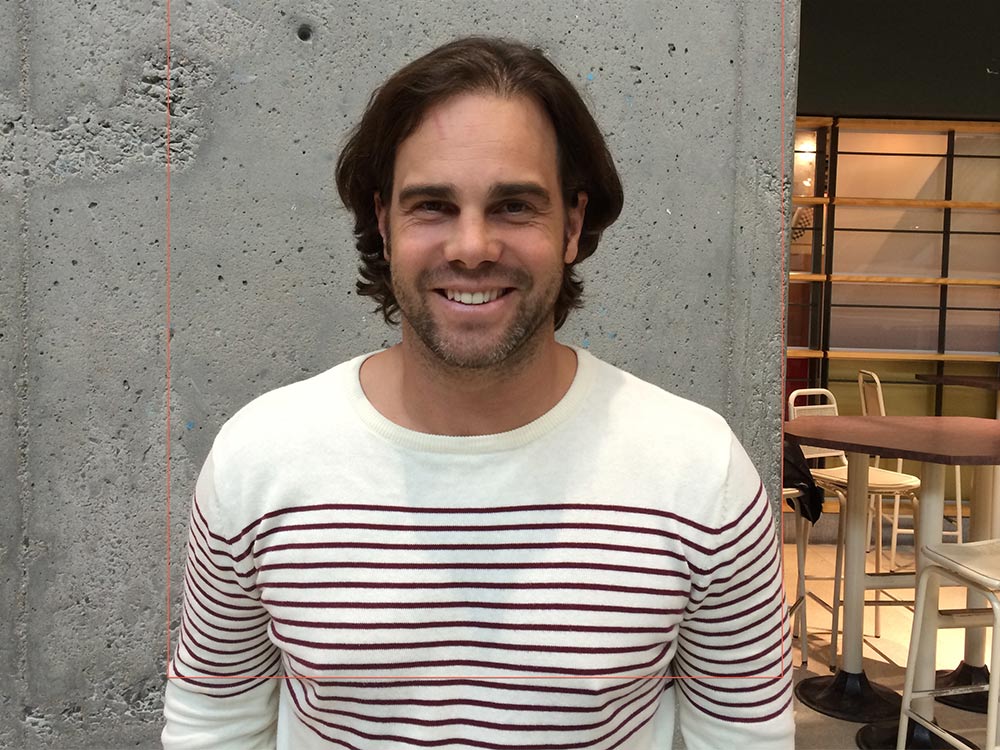
Who stole my idea?
Jean-Sébastien Noël's Words of Wisdom
Jean-Sébastien Noël is the co-founder and manager of La Ruche, a non-profit with a mission to promote the development of projects that serve to stimulate local business. Through its local crowdfunding platform, the organization contributes in a concrete way to the development of new business projects in Quebec.
Ah, the infamous problem of having your big idea stolen... Which one of us has never had someone else steal their idea? Isn't that what happens when we talk too much and too loudly about our ideas, boast too much and tell too many people about our plans?
Having a good idea
It occasionally happens that someone who heard us talking has the time, the interest and the skill to push our idea out of the concept phase and make it a concrete reality, leaving you in the dust. It's common to feel that the only thing missing from your precious idea in order to make everything fall into place is that special ingredient that only you possess, and yet someone has gone and stolen it from you. Just imagine: Today you could be a retired millionaire, living on an island with white sandy beaches... And so you promise yourself that you will never share your ideas with anyone ever again. But was it really such a great idea?
In my role as co-founder and manager of La Ruche, we regularly see many entrepreneurs with a multitude of good ideas. They are often worried about learning how to protect their idea once their online crowdfunding campaign is launched. My answer is usually: “The best way to protect your idea is to make it a reality!”
In real life, if you have a good idea, you should pat yourself on the back, and then prepare yourself for the grind ahead! Instead of thinking you’ve discovered a magic recipe, you should take for granted that likely dozens of other people have landed on the same good idea as you did and that they have already started working on theirs.
But you still should not hesitate to talk about your idea. By talking about your concept you can take advantage of feedback that will be useful in developing it. People will say things like, “I have a friend that did something similar, I could introduce you,” or “That’s a cool idea but have you considered... ?” or “I love your concept. Is there any way I can help you with it?” etc. You’ll also be able to find possible collaborators or team members. To succeed, an idea needs to be improved and adjusted to fit reality—it needs to be flexible. It also needs a competent team and significant investment. You can’t do all that alone. And the further you advance in your project, the more difficult it becomes for someone else to steal your idea. Why? Because your idea has taken on a reality of its own and started to exist outside of your own head. My first tip is to ask yourself why it is that no one has undertaken your idea before. Asking that question will help you foresee any difficulties that may arise in the future.
What about a confidentiality agreement?
Yes, in some cases, the intellectual property associated with a system, procedure or even an idea is worth protecting with patents. Confidentiality agreements are useful when they are between partners who are sharing secrets. On the other hand, in the majority of cases, the signatories need to declare any possible conflicts of interest, and you risk the discussion breaking down at the very moment when it should really be starting.
Why not register your brand? Because in actual fact a brand’s presence on the market is often more useful than the mere fact that it has been registered as a trademark. In other words, if you are not using the brand you have protected, it could lose any potential legal battle with a company that is actively promoting the brand without having any formal registration. In short, if you have the time and the money to register your brand, that is an advantage, but it is always better to simply use it actively in the market.
You should also know, dear entrepreneur, that once developed an idea never ends up being completely faithful to the idea you had at the start. It evolves. It get criticized and challenged by people or the market and needs to adapt to survive. All these battles are necessary, even essential—turning an idea into reality is like running an obstacle course.
How can I turn my idea into a success?
Who knows? That’s the beauty of entrepreneurship. We start projects and take our chances, provoking encounters, discussions, even disagreements, and you listen to it all in order to learn and understand your idea even better.
If you launch a campaign on La Ruche, for example, you might be afraid of letting people in on your idea. But you could also turn that around and instead announce proudly, “This is my idea! This is my dream!” And from that moment on, your concept has an existence in reality and you’re already ahead of the 10 other people who might have the same good idea.


